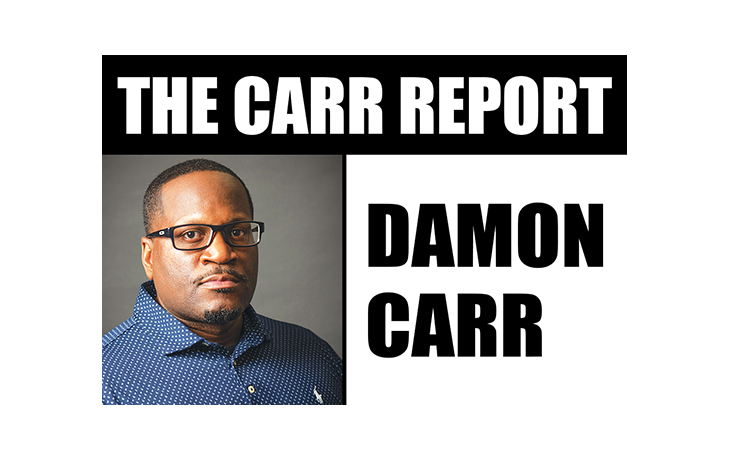They say love conquers all — but let’s keep it real: love won’t conquer poor money management.
You can have all the chemistry and connection in the world, but if your partner’s financial habits are reckless, your relationship is built on shaky ground. Dating or marrying the wrong person can wreck your finances faster than unemployment, bad credit, high-interest loans, or missed payments.
When it comes to relationships, you can’t afford to ignore the money factor.
Love May Be Blind, but Money Sees Everything
In the game of love, people chase sparks—the butterflies, the late-night talks, the chemistry that makes your heart skip. But while romance might light up your world, it won’t light up your bank account if you’re with the wrong one.
You can post “couple goals” and matching outfits on social media all day, but if your relationship is financially toxic, your wallet will tell a different story.
Love might feel good, but financial stress will test that love like nothing else. Love is powerful, but it doesn’t pay rent, erase credit card debt, build an emergency fund or fund retirement. When you mix romance with poor money management, you’re signing up for stress, arguments, and regret.

Financial Recklessness Is Costly
Financial recklessness goes beyond impulse shopping or bad credit. It’s a mindset. It’s the partner who sees budgeting as optional, savings as “boring,” and debt as “normal.” It’s the person who laughs off financial goals or calls you “cheap” because you want stability.
Before you know it, you’re co-signing loans, covering bills, and trying to clean up a mess you didn’t make.
Job loss or emergencies happen—those can be managed. But chronic overspending, gambling, lack of savings or a “you only live once” attitude toward money? That’s a guaranteed path to going broke.
Financial Compatibility: The Make-or-Break Factor
You and your partner don’t have to earn the same income, but you must share similar money values. When one person budgets and builds while the other spends recklessly, tension builds, resentment grows, and the relationship suffers.
At first, that “free spirit” attitude might seem exciting—spontaneous trips, constant takeout, carefree spending. But once bills come due, that vibe turns to stress. You’re working extra hours while they’re still spending. Money fights soon to follow.
Financial compatibility isn’t about perfection; it’s about alignment. It’s about shared goals and shared priorities. It’s about two people moving in the same direction financially.
Red Flags That Signal Financial Danger
If you’re serious about protecting your future, pay attention to these financial warning signs:
The Chronic Borrower: Always asking to “hold something” until payday.
The Bill Dodger: Dodges calls from creditors like it’s a sport.
The Big Spender, Small Saver: New shoes, new phone, no savings.
The Cash-Flow Mystery: Makes good money but always broke.
The Credit Ghost: Bad credit, no plan, no accountability.
If this sounds familiar, you’re not dating a partner—you’re dating a problem. When one partner builds wealth and the other builds debt, it’s not “opposites attract.” It’s “opposites collapse.”
Financial stress breaks more couples than infidelity. It exposes priorities, spending habits, and truth behind “for better or worse.”
I’ve seen strong, disciplined people spiral into financial ruin because they let emotions (love) override logic (money). Love can cloud judgment, but the end result of making good or bad money decisions will give you 20/20 vision fast.
Protect Your Bag Before You Share It
Before you merge your life with someone, merge your goals. Before you share money, share honesty.
Would you create a business partnership with this person? Because marriage is the ultimate partnership. Marriage is an emotional, spiritual, and financial partnership rolled into one.
Here’s your playbook:
- Date Wisely
Ask the right questions early.
How do you handle unexpected expenses?
Do you budget or track your spending?
What’s your biggest financial goal?
If they get defensive, that’s a red flag. Don’t ignore it.
- Marry Carefully
Before you say “I do,” say “let’s talk.”
Pull credit reports.
Disclose debts.
Discuss saving, investing, and future goals.
Financial transparency isn’t unromantic—it’s maturity. You’re not signing up to fix someone’s chaos; you’re signing up to build a future.
- Set Boundaries
Love doesn’t require blind trust with money.
Don’t merge accounts too soon.
Don’t co-sign loans.
Don’t “loan” what you can’t afford to lose.
If they can’t manage one hundred dollars responsibly, don’t trust them with ten thousand.
When Two Builders Connect
Now let’s flip it. When two financially disciplined people connect, it’s power.
That’s wealth energy—two people aligned with shared vision and purpose. They budget together, save together, invest together, and celebrate progress together.
They’re not arguing about money and bills; they’re strategizing their life goals. They’re using their income to better their lives together. That’s what financial intimacy looks like: transparency, teamwork, and trust.
Love Is Emotional. Money Is Mathematical.
Love makes you feel. Money makes you think.
That’s why so many couples end up heartbroken and broke—they lead with emotion and ignore the math.
If your partner can’t handle one thousand dollars responsibly, marriage won’t make them handle ten thousand better. Marriage doesn’t fix financial immaturity—it magnifies it.
You can’t build a mansion on a cracked foundation.
Love is the emotion. Money is the structure. You need both solid to stand tall.
The Real Love Talk
Don’t wait until after the honeymoon to talk about money. Talk before you fall too deep.
Ask the tough questions:
How do you feel about debt?
Do you save or spend first?
What’s your five-year financial vision?
If that conversation feels uncomfortable, that’s exactly why you need to have it. Silence about money leads to struggles about money.
Choose Growth, Not Debt
Attraction might be instant, but commitment is a decision. Choose someone who wants to build with you—not break you down financially and emotionally. A supportive partner adds peace to your purpose, not pressure to your paycheck.
When you date someone who respects money, your goals multiply. When you date someone who abuses money, your goals will never materialize.
Don’t let loneliness rush you into a costly relationship. It’s cheaper to stay single than to marry a spendthrift.
Bottom Line
When you date wisely, marry carefully, and protect your bag, you create a love that thrives emotionally and financially.
So before you fall for looks, charm or swag, look for a partner that mirrors your money mindset. Before you dream about matching rings, make sure you share matching values—especially about money.
(Damon Carr, Money Coach & Tax Pro can be reached at 412-216-1013 or visit his website at www.damonmoneycoach.com)
Helping you flip your finances from stressed to blessed — one smart decision at a time.

